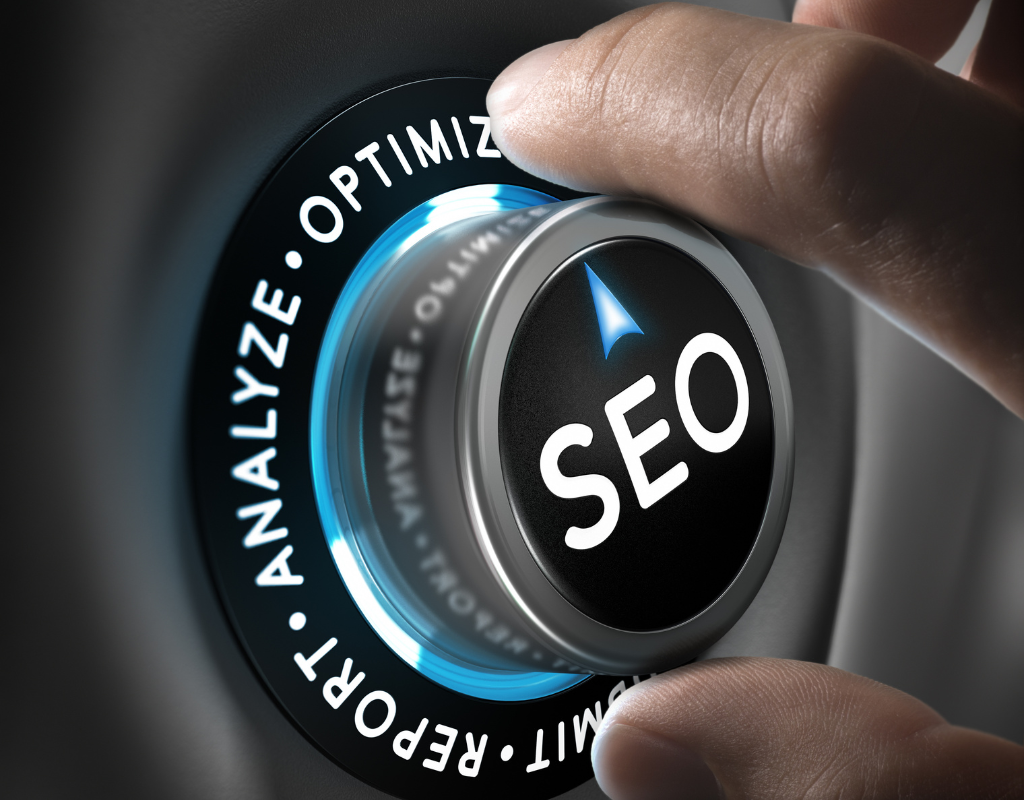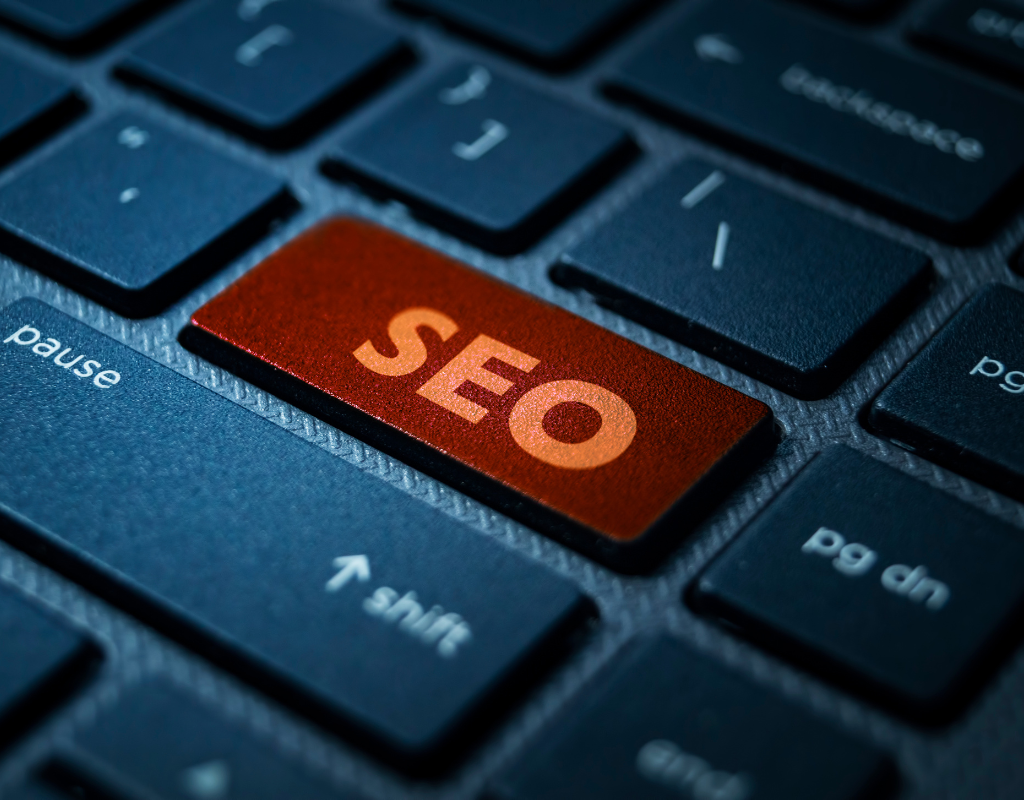Artificial intelligence has been one of the biggest buzzwords of the past few years – what was once a sci-fi dream in Star Trek or in novels has now become a household name. Artificial intelligence programmes are some of the most controversial technological developments in recent years and have divided opinion massively. In fact, even technical leaders such as Tesla leader Elon Musk and Apple co-founder Steve Wozniak have recently signed a letter warning against the development of AI tools. Even the leader of London business Stability AI, Emad Mostaque, added his name to the open letter.
AI programmes are set to affect many sectors including tech development, medicine, and climate science. However, one of the aspects many people are confused about is how artificial intelligence may affect digital marketing, such as search engine optimisation and social media advertising. Many AI commentators are theorising that AI tools could make digital marketing completely automated, drastically reducing the sector’s workforce.
However, what many people have theorised is yet to be fully realised. Many people asserted that by now artificial intelligence would completely replace workers in the sector, however, this is yet to be seen. Google has been using artificial intelligence and machine learning in the development of its algorithm since 2016 – however, since the recent release of Chat GPT, AI has truly become mainstream. But how have AI tools already changed the world of search engine optimisation and the work of digital marketers, and how could they change it in the future?
How Has AI Already Changed SEO?
Many people are already utilising AI tools in order to do their website’s SEO – some digital marketing agencies are using AI tools to improve their website’s standing on SERPS. But how have AI tools already changed the world of SEO, even in its early stages?
Content Creation
The recent release of Chat GPT has been one of the most transformative developments in SEO. For many years, people would constantly say ‘content is king’ in regard to how to make their websites rank. Whether you agree with the moniker, good content on your website is still an important part of SEO. If your website is empty, you will have a harder time improving your organic rankings.

A few years ago, all content was written by humans. However, many people are using AI tools such as Chat GPT to write articles, blog posts and landing pages. Although it is often easier to spot content generated by artificial intelligence, it is getting harder to spot it outright as AI tools become more sophisticated. This means that while AI-generated content won’t have ranked in the past, it getting easier for AI content to slip through the algorithm.
Although some people have benefitted from using AI-generated content, it is still quite tricky as there is still a likelihood of your website being penalised. As AI content finds information from other websites, your content could have high levels of plagiarism. It is also easy for AI-generated content to sound very robotic and unnatural, and include biased information. These factors mean your content is more likely to be considered spam and could mean your website is penalised by the Google algorithm.
While this could change as the programmes become more sophisticated, at the moment, AI-generated content is not at any risk of replacing content written by humans.
Automating Small Tasks
Although AI-generated content may not be accurate when it comes to actually producing content, it is usually quite accurate when it comes to sorting large amounts of data by relevancy. This makes it easier for search engines to provide accurate results when it comes to user data and information. This could transform the way digital marketers can generate high-volume topics for content, and could automate and speed up the research process when it comes to writing good content. This could free up a lot of time to do more SEO tasks in a shorter amount of time or create content much quicker.
One of the ways AI automation has already positively impacted SEO is through the use of chatbots on a website. User experience is one of the most important parts of SEO, and using AI to power helpful chatbots on your website to help with customer queries can help your rankings. AI chatbots are improving all the time, meaning they can produce more accurate responses and provide a more personal experience to the customer. This can improve potential customer’s relationship with the brand website, and make customers more likely to return. AI’s ability to automate tasks is one of the best ways artificial intelligence has changed SEO so far.
Transform The Way Search Tools Work
As aforementioned, Google has been using artificial intelligence in its algorithm since 2016 – however recently AI has developed to such an extent that it is improving how search engines could work in the future. For example, AI could analyse a user’s location, age and search history to personalise user results and promote websites based on demographic, which could improve conversion rates as you will be optimising how many qualified users see your website. On the other hand, this could mean your website may not reach a potential sale, which could be bad for SEO in general.

AI tools could also improve how voice search is used. AI algorithms are becoming more sophisticated, able to understand queries in a multitude of different accents and languages and providing accurate results. This could transform how keyword research is done, as using conversational language in keywords and phrases in SEO strategies could improve their website’s visibility in voice search results. This could be a big improvement on general search engines, as it could become more accessible to all users.
The Limitations Of AI SEO
However, artificial intelligence tools are sometimes not the be-all, end-all they are sometimes described to be. Although AI is a huge technological development and is one of the biggest developments of our age, and could have huge potential, there are some limitations of AI in digital marketing so far. But what are these limitations, and could these problems be fixed in the future?
Could Impact The Use Of Search Engines
The Google algorithm has traditionally promoted content that shows experience, expertise, authoritativeness, and trustworthiness. However, with AI-generated content flooding the internet, there is a huge opportunity for misinformation to start ranking and confusing the user experience. If businesses start solely using AI tools to create content, they could end up with misinformation or biased content on their website. Overall, this would be bad for SEO as it could lead to helpful, informative content no longer being useful. If the internet becomes flooded with content that is simply websites copying each other, it could mean your website gets lost in the fray.
Loss Of Control
Using SEO programmes and tools that use artificial intelligence could result in a loss of control over search rankings and referral traffic, which is one of the key ways that we track progress in SEO. Now that Search Engines are starting to use AI in search, it is yet to be seen how that information will be attributed back to the original source.

This could lead to digital marketers having no control over tracking rankings and tracking organic search traffic, making it almost impossible to trace the progress of SEO efforts. This could be very difficult for the future of SEO, as it will become harder for digital marketers to tell whether their website is actually getting traffic and attention from search engine users.
Think Like A Human Being
Although artificial intelligence can do a lot of things that humans can’t (such as produce 1000 words of content in seconds) there are also limitations to what it knows. For example, it has been pointed out that AI could make it easier to spot emerging trends by analysing search data at a very fast pace. However, it often can’t hit on something completely brand new, as it relies on analysing past human data to produce results and content.
Therefore, human input may also be needed as SEO is a constantly evolving landscape that always needs brand-new ideas. Although artificial intelligence tools do a marvellous job of replication, they can’t create brand new like a human can. A prominent speaker on digital marketing, Purna Virji has said that sometimes human content is needed to stand out amongst AI-generated content. We could see this becoming true in the future, as more businesses and organisations use AI tools to create content.
So, Will AI Change How SEO Works?
It is clear that AI is here to stay – it is ingratiated in many essential business tools, such as data analysis tools, automation programmes and even cyber security services. Despite the open letter signed by industry leaders to slow AI development down, it is clear to see that it will never disappear completely.
However, at the moment it is too early to definitively say exactly how it will change the world of SEO. Although artificial intelligence tools have already impacted search engines and SEO content and strategies, there are still limitations which cast doubt on the idea that they will completely dominate search engine optimisation any time soon.
As more companies start to use AI tools in their SEO strategy, and more digital marketing agencies dabble with AI tools, it’s important that digital marketers remain to keep their finger on the pulse. In the quickly evolving world of AI, the strategy could change very quickly or a Google Algorithm update could change the extent to which artificial intelligence is involved in SEO.
SEO is a sector that is always evolving – make sure that you keep your eyes on how AI could transform it in the next couple of months and years. This way, you will be ahead of the curve and will be able to ensure that your SEO strategies evolve.

















